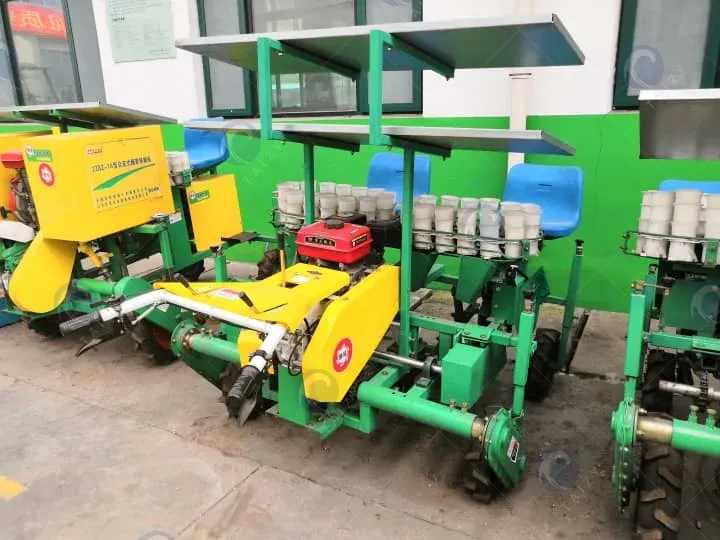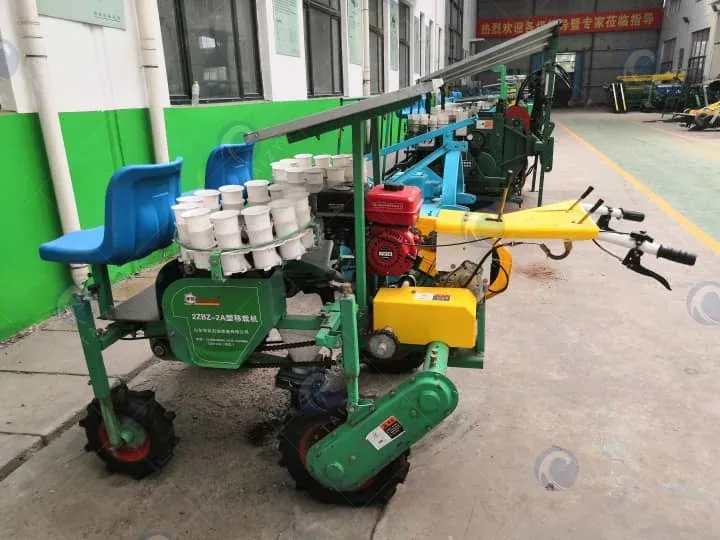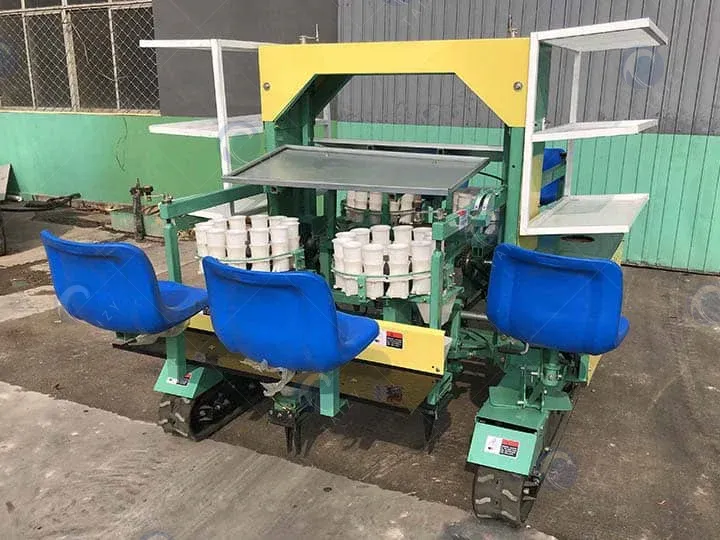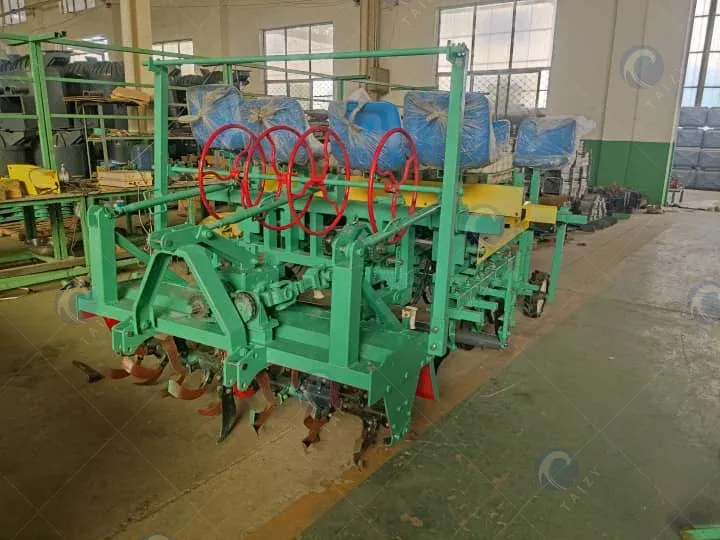What are the different types of vegetable transplanters?
In modern agriculture, growing vegetables is no longer a simple task, but requires efficient, precise and sustainable methods to ensure a bountiful and profitable harvest. Transplanters, as an important piece of agricultural machinery and equipment, play a key role in the planting process.
In this paper, different types of vegetable transplanters including self-propelled transplanters, tracked transplanters and tractor-driven transplanters will be introduced to explore their applications and advantages in modern agriculture.

Self-propelled transplanters
Taizy self-propelled seedling transplanter is a common type of transplanter that offers flexibility and portability. Equipped with an automated planting system, the transplanting machine can move quickly through the field and perform planting operations.
It has 1 row, 2 rows, 3 rows and 4 rows available, suitable for small to medium-sized farms and can efficiently perform vegetable planting tasks.
This kind of self-propelled vegetable transplanters is characterized by easy operation and low maintenance, making them the tool of choice for many farmers.

Tracked seedling transplanter
The tracked transplanter is a transplanter that is suitable for a wide range of soil conditions. It utilizes a track design that allows it to run smoothly over varied terrain and has a strong grip on the ground.
This type of transplanter uses 2 rows, 4 rows, 6 rows, 8 rows, 10 rows and 12 rows, usually used for onion seedlings transplanting. It is generally equipped with a larger planting capacity and is capable of planting large areas in a shorter period.
The advantage of tracked transplanters is that they are highly adaptable and can cope with a wide range of complex planting environments.

Tractor-driven transplanting machine
A tractor-type vegetable transplanter is a type of transplanting machine that needs to be used in conjunction with a tractor or other towed vehicle. It usually has a larger planting capacity and higher moving speeds, enabling it to complete large planting tasks quickly.
Our tractor-driven transplanter is available in 2 rows, 4 rows, 6 rows, 8 rows, 10 rows and 12 rows, able to add functions of rotary tiller, fertilizer, making ridge, film mulching, laying irrigation tape, watering, spraying. Tractor transplanters are suitable for large farms and large-scale planting projects to increase planting efficiency and yield.
It is characterized by easy operation and flexible movement, and is an important auxiliary tool for large-scale agricultural production.

Conclusion
Different types of vegetable transplanters have their own characteristics and are suitable for farms of different sizes and soil conditions. Whether it is a wheeled self-propelled transplanter, tracked transplanter or towed transplanter, they all play an important role in improving seedling planting efficiency and reducing labor intensity.